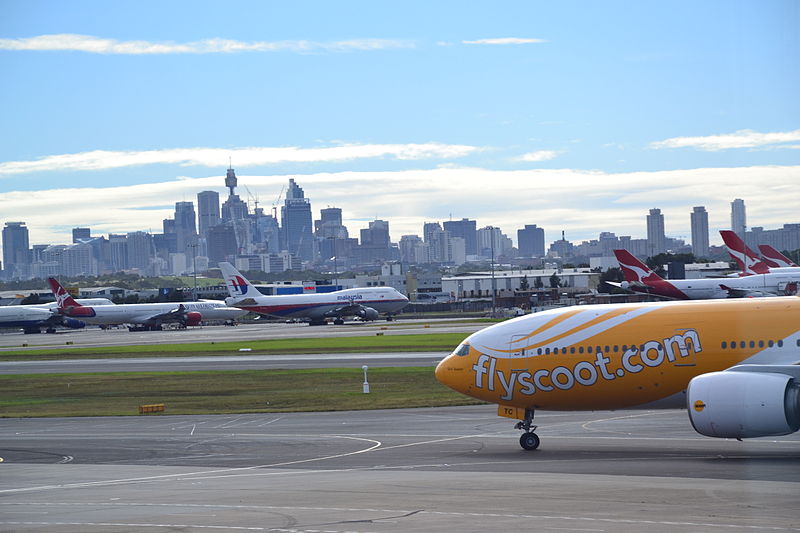Until now, regional carriers have managed to avoid serious disruptions, but analysts expect that the problems of Max 8 aircraft will impede the growth of airlines in the near future.
On March 10, Ethiopian Airlines Boeing 737 Max 8, flying from Addis Ababa to Nairobi, crashed. The disaster killed 157 people.
At the end of October last year, an aircraft of the same type by the Indonesian company Lion Air fell into the Java Sea. All 189 people were killed aboard.
After the crash of Ethiopian Airlines, the authorities of a number of countries, including the USA, China, EU countries, Russia and Indonesia, decided to suspend the operation of the Boeing 737 Max 8.
Almost 400 Max aircraft are now staying idle around the world. In Asia, where passenger traffic is growing the fastest, this has provoked an increase in airline spending, which, combined with an increase in fuel prices, puts pressure on carriers' profits.
Chinese airlines have 96 Max 8 aircraft, but carriers have managed to avoid mass cancellations of flights by using other aircraft, Calvin Lau from Daiwa Capital Markets in Hong Kong said. "However, this may limit the growth of their capacity in the upcoming peak season," he added.
Indonesian carrier Lion Air said on Friday that it “works as usual, minimizing the impact” of stopping the operation of 10 Max 8 aircraft.
However, not all airlines coped with consequences of the suspension of flights of these aircraft. The low-cost carrier Scoot, owned by Singapore Airlines, announced that it would suspend flights between Singapore and four cities.
Scoot, which does not have Max 8 aircraft, explained its decision by "a combination of weak demand and a shortage of aviation resources." On March 12, SilkAir, a regional division of Singapore Airlines, suspended operation of six of its Max 8 aircraft and, therefore, "will no longer transfer its Boeing 737-800NG aircraft to the Scoot in the 2019/2020 fiscal year."
Fitch Ratings said in April that until now suspension of the operation of the Boeing 737 Max has had a restrained influence on the aviation industry in Asia due to seasonally low demand in Q1, but the effect may increase in Q2 2019. The agency noted limited capabilities of airlines in finding alternatives to Airbus or Boeing.
source: apnews.com
On March 10, Ethiopian Airlines Boeing 737 Max 8, flying from Addis Ababa to Nairobi, crashed. The disaster killed 157 people.
At the end of October last year, an aircraft of the same type by the Indonesian company Lion Air fell into the Java Sea. All 189 people were killed aboard.
After the crash of Ethiopian Airlines, the authorities of a number of countries, including the USA, China, EU countries, Russia and Indonesia, decided to suspend the operation of the Boeing 737 Max 8.
Almost 400 Max aircraft are now staying idle around the world. In Asia, where passenger traffic is growing the fastest, this has provoked an increase in airline spending, which, combined with an increase in fuel prices, puts pressure on carriers' profits.
Chinese airlines have 96 Max 8 aircraft, but carriers have managed to avoid mass cancellations of flights by using other aircraft, Calvin Lau from Daiwa Capital Markets in Hong Kong said. "However, this may limit the growth of their capacity in the upcoming peak season," he added.
Indonesian carrier Lion Air said on Friday that it “works as usual, minimizing the impact” of stopping the operation of 10 Max 8 aircraft.
However, not all airlines coped with consequences of the suspension of flights of these aircraft. The low-cost carrier Scoot, owned by Singapore Airlines, announced that it would suspend flights between Singapore and four cities.
Scoot, which does not have Max 8 aircraft, explained its decision by "a combination of weak demand and a shortage of aviation resources." On March 12, SilkAir, a regional division of Singapore Airlines, suspended operation of six of its Max 8 aircraft and, therefore, "will no longer transfer its Boeing 737-800NG aircraft to the Scoot in the 2019/2020 fiscal year."
Fitch Ratings said in April that until now suspension of the operation of the Boeing 737 Max has had a restrained influence on the aviation industry in Asia due to seasonally low demand in Q1, but the effect may increase in Q2 2019. The agency noted limited capabilities of airlines in finding alternatives to Airbus or Boeing.
source: apnews.com





